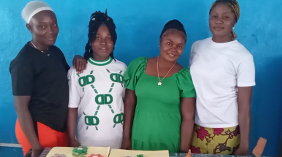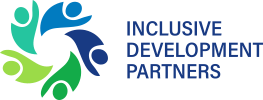When “sustainability” was never a buzzword: inclusive education in Liberia

By Patience Garlawolo, Leonora Toomey Johnson, Martha Dobboh, Margaret Saydu Suah, Ricardia Badio Dennis, and Hayley Niad
The Liberia Transforming the Education System for Teachers and Students (TESTS) Activity ran from 2022-2025, when it was abruptly terminated along with most USAID education programs worldwide. Among many other goals, it helped to share training and curriculum on universal design for learning (UDL), inclusive education, gender inclusion, and understanding students with exceptionalities to eight pre-service teacher training institutions. This curriculum was taught by a group of highly committed professors and lecturers who are preparing the next generation of Liberia’s early childhood education and primary school teachers to be inclusive.
The loss of funding from TESTS has had devastating consequences on these institutions. Hundreds of students have lost scholarships, and while each university is making efforts to retain them, inevitably many future teachers – including women and persons with disabilities –have dropped out.
The good news is the curriculum on inclusive education has been finalized and used by the institutions for years. And the message that every child, regardless of disability, gender, poverty, or any other identity, belongs in school and deserves to learn and be respected, has been endorsed and shared. In the months since TESTS has disappeared, what have we done to carry the work forward? Here are some examples:
- As teachers from Cuttington University, LICOSESS College of Education, and University of Liberia, we have ALL voluntarily delivered in-service training workshops on UDL. We are all members of networks where we are called upon to offer training to everyday teachers, who have never heard of UDL before. When we are given the choice of what to teach others, we always choose UDL, and it pays off.
- At Cuttington University, the current class of students in the Inclusive Education course is so inspired by the message that they are planning to run community awareness-raising campaigns on the importance of inclusion and challenging traditional beliefs about segregation and exclusion.
- At LICOSESS, we have seen that the recent graduates of our program are demonstrating UDL strategies in the classroom, which our teacher aspirants can observe when they go out into the field. By comparison, they do not observe UDL strategies in the average Liberian classroom, and we use these observations to discuss recommendations on what the students would do differently as teachers themselves.
- At the University of Liberia, our new President is an advocate for UDL, and is working to make our UDL course available to other departments in the College of Education and colleges across the university.
- When we are called upon to join communities of practice or project planning meetings, like with UNICEF or a Higher Education Consortium, we advocate for the inclusion of UDL into courses and programs across curricula and institutions.
We do all of this not because anybody told us to. Certainly, nobody is paying us to advocate for inclusion. We do it because we have seen with our own eyes and experiences what a real difference inclusive teaching practices can have in the classroom. We do it because we believe the children of Liberia deserve a better education. We do it because we never tire of hearing a trainee say, “how have I gone all my life not knowing about UDL, as it will make such a difference in my classroom?”
“Sustainability” was never a buzzword for us. Liberia is where we live, and inclusive education is our mission.
